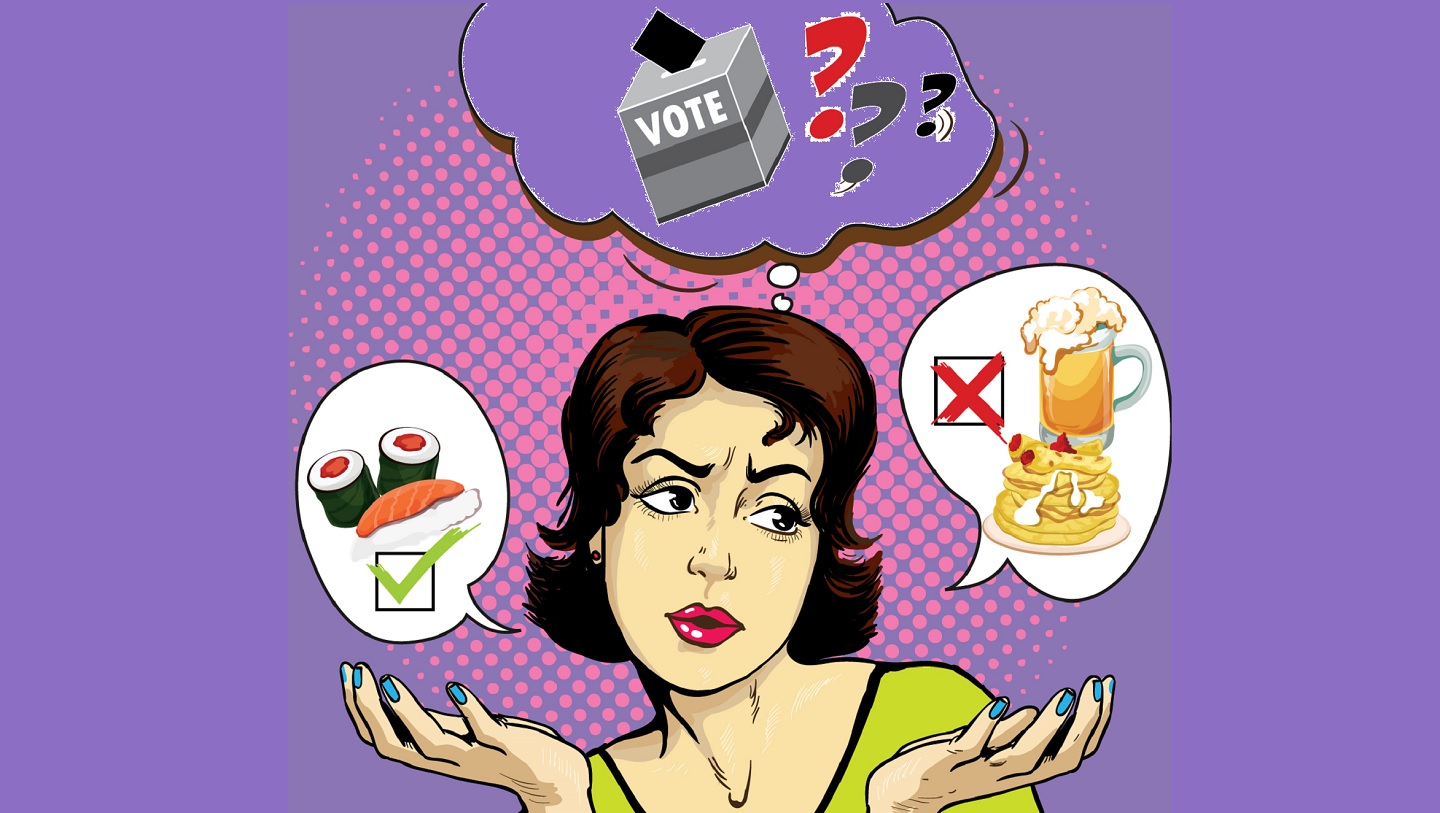
(Design: Nurul Aida Mohd Noor)
Obesity and its attendant problems are misguided reflections of a country's affluence. The reality is that people are consuming, or being fed, stuff that are bad for them.
The good news is anyone can choose what he wants to eat, and many other things besides.
In Harvest for Hope: A Guide to Mindful Eating, Jane Goodall, who has dedicated her life to working with primates, observed that Topo, an adult male chimpanzee living at a sanctuary in Oregon, the US, “invariably selects organic vegetables and fruits when allowed to choose”.
The articulate and much-loved “Chimpanzee Mother”, worried about her own grandchildren’s future, was moved to write a book about food because she believes people should be “connected with [what] they eat and understand its nature and history and embrace a more natural diet”. That means saying no to unhealthy ingredients and portions, and profit-driven corporations that choose to ignore the fact that they are destroying the earth with wanton use of chemicals.
Choice, defined as the right or opportunity to choose between different things, gives an individual the feeling of power and being in control. People want a say in how they live and now, die too, because it adds meaning and quality to their life.
Hold two lollilops before a child and watch how her eyes dart between them. She will invariably smile as she reaches for the one she wants, happy that she has made up her mind. The same goes for the trendy teenager who spends hours dithering over pumps or heels, floral prints or stripes, and necklace or earrings before making her purchase.
Businesses know that individual taste, preference and need are at play when it comes to choice, and more and more companies are pandering to that to woo customers and win their loyalty. Banks and credit card schemes acknowledge that offering people a wide range of options has an effect on their purchasing decisions and empowers them to make the right decisions.
Choice, defined as the right or opportunity to choose between different things, gives an individul the feeling of power and being in control
Take the simple matter of getting a car seat for baby.You start by shopping with make, design, size, weight, material, colour and cost in mind. As the quantity of brands and models widens, other factors start to matter, such as quality and the reputation of the manufacturer. Will the seat accommodate a growing baby, for the next five years at least? Is it strong enough to serve its purpose? Is it produced by a company that cares about ethics and the environment? Would you want to add to the coffers of a producer known for shoddy work or shady practices?
There was a time when travellers, faced with bland and unsuitable meals served on a plane, either went hungry or dug into their carryall for a packet of biscuits. Today, a vegetarian can make a request when booking his flight and an enjoy a meat-free dish on board, while watching his children tuck into meals adapted to their taste.
Airline staff have made strides in pushing for what they can wear at work. In March, the female uniformed staff of Cathay Pacific and its subsidiary Cathay Dragon won the right to choose trousers in a “progressive change” by the 71-year-old Hong Kong carrier.
In the last decade, Korean Air, Asiana Airlines, KLM, Bangkok Airways, Alitalia, British Airways and Ethiopian Airlines have done away with the skirts-only ruling. In 2015, Air India introduced kurtis, churidars and trousers for its female staff after a cabin crew uniform overhaul while retaining its trademark black-and-red sari.
Choice goes hand in hand with responsibility and accountability because what people decide often determines their experiences. There are instances when people choose impetuously and suffer the consequences. There also also risk-takers who opt to follow their gut instinct, and heart, and do something different or out of the ordinary and are the better for it.
Scientists remind us that human beings are one up on other animals because of our capacity to make decions. Psychologists say you can get people to do things by giving them options. Parents who dictate the courses their children take find out, usually too late, that their heart is not in it and they drop out. Teachers have learnt that students are motivated to do well when they get to choose what they want to do because it relates to their interests and abilities.
Coming back to Goodall, Harvest for Hope is dedicated to small farmers, especially those who have thrown themselves into organic practices and are struggling to survive, and people working to reintroduce fast-food nations to real, wholesome food.
She ends the book with a reminder that “every food purchase is a vote. We might be tempted, as individuals, to think that our small actions don’t really matter... Our purchases, our votes, will determine the way ahead. And thousands upon thousands of votes are needed in favour of the kind of farming practices that will restore health to our planet.”
The same rationale applies to choosing a government.
This article first appeared on May 7, 2018 in The Edge Malaysia. Pick up a copy at your nearest newsstands.


